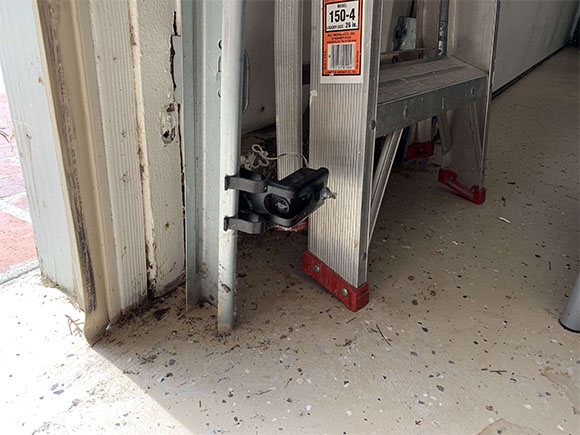What Are Garage Door Safety Eyes?





WITH 724 REVIEWS
Click Here To Book Online Now





CLICK
To view local phone numbers

Garage door safety eyes help to keep people, pets, and objects safe.
Your garage door is more than just a door that goes up and down with the click of a button. It’s composed of a motor that helps it move, a wall control panel that helps you set up the door to your liking, and features that help keep you safe. One of those features are the photo eyes, also known as safety eyes.
It’s only in the last 20 years that safety eyes have become mandatory. Prior to that, a garage door would have to touch or hit something before it would stop and reverse back to the open position. Safety eyes, located towards the bottom of your garage door track, alert the garage door opener that something is beneath the door or passing through the garage door frame as it’s closing so the opener stops and reverses the door back up.

How do safety eyes work?
The garage door opener is equipped with a Sender safety eye and a Receiver safety eye; and it works just as it sounds. One safety eye is the Sender. The other is the Receiver.
The Receiver safety eye gets the signal from the Sender that the path is clear and uninterrupted so the door can close. If that signal is interrupted by an object between the safety eyes, they’re misaligned or there is debris on the Receiver, the door will not be able to close. The Receiver safety eye will not have the LED lit up if it is not getting any message from the Sender.
More to Know About Safety Eyes:
- Wires should be pig-tailed so they don’t get yanked out accidentally.
- Safety eyes should be 3–6” from the ground.
- Safety eyes can be knocked loose from the rail, so we suggest mounting them with an extension bracket.
Categories:
SafetyLicense
License #120079









